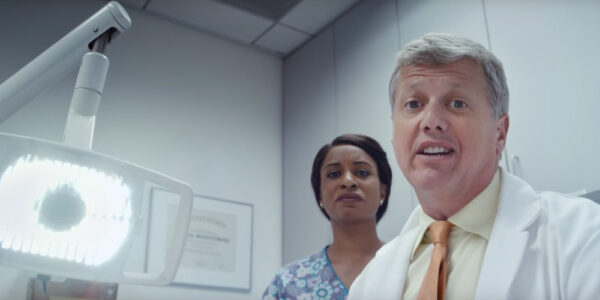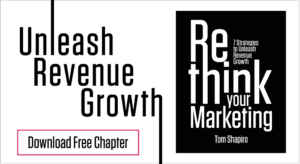The Power of LifeLock’s Analogies

“David, you have one of the worst cavities I have ever seen.”
These were the words in the dentist office, while the man in the dentist’s uniform examined the mouth of a patient. A plastic device uncomfortably kept the patient’s mouth open in an awkward position as the man poked and prodded inside the patient’s mouth.
The man then smiles, pats the patient on the back, and says, “OK, have a good day.”
The patient asks, “Aren’t you going to fix it?” The man is surprised, and laughs, “Oh, I’m not a dentist, I’m a dental monitor. I just tell you when you have a bad cavity.” His assistant looks over his shoulder and reaffirms the condition of the cavity, “It’s bad!”
The assistant then turns to the dental monitor and asks, “Lunch?” and he replies, “Oh, yes!” and they head out the door together. The patient is left sitting in the dental chair with the large, uncomfortable plastic piece in his mouth.
On the screen, the commercial then asks you, “WHY MONITOR A PROBLEM IF YOU DON’T FIX IT?”
Good point.
This is a commercial for LifeLock. What’s the relationship? LifeLock points out that others offer free credit “monitoring”. Only LifeLock promises to fix identity theft problems with a $1 million guarantee. As you can imagine, identity theft is somewhat of a challenge to visualize to prospects, as it involves varying invisible factors underlying your identity, financials, and reputation. How can you make the service more tangible and compelling for people?
As LifeLock has learned, analogies can be powerful. In addition to a dentist’s office, LifeLock presents us with examples of an exterminator who finds termites in a couple’s home (but doesn’t fix the problem because he’s only a pest monitor), as well as a guy in a security uniform at a bank who confirms that there are bank robbers (he’s only there to monitor, not to provide actual security services). The commercials are funny, but their impact is even stronger by presenting the viewer with a situation that they would find ludicrous in any other context, but for some odd reason is commonplace when it comes to identity theft related services.
https://www.youtube.com/watch?v=NgT2wyBZN6A
Why are analogies so effective?
Analogies make the abstract tangible. They lead to greater cognitive fluency, helping our brains to process information faster.
By representing the value of their services with a situation that just about any of us can viscerally understand and envision for ourselves – being in a dentist’s chair fearful of a cavity – LifeLock makes their value proposition more immediately understandable. Not only in a theoretical way, but they get our bodies to physically react.
Imagine if instead LifeLock simply tried to explain why the protection of your identiy is so important and how monitoring addresses only one part of the overall problem yet leaves unsolved a major part of the problem. The longer the explanation, the more our minds tune out. In fact, our minds wander 30% of the time, according to the behavioral psychologist Susan Weinschenk, and so it’s critical to make a video captivating enough to stand out and grab your attention yet immediately recognizable to allow for a high level of cognitive fluency. The faster you get to an emotional, visceral reaction, the stronger the impact and the greater the ability of the marketing to drive your audience to action.
What analogies can you use to improve the performance of your own marketing?
